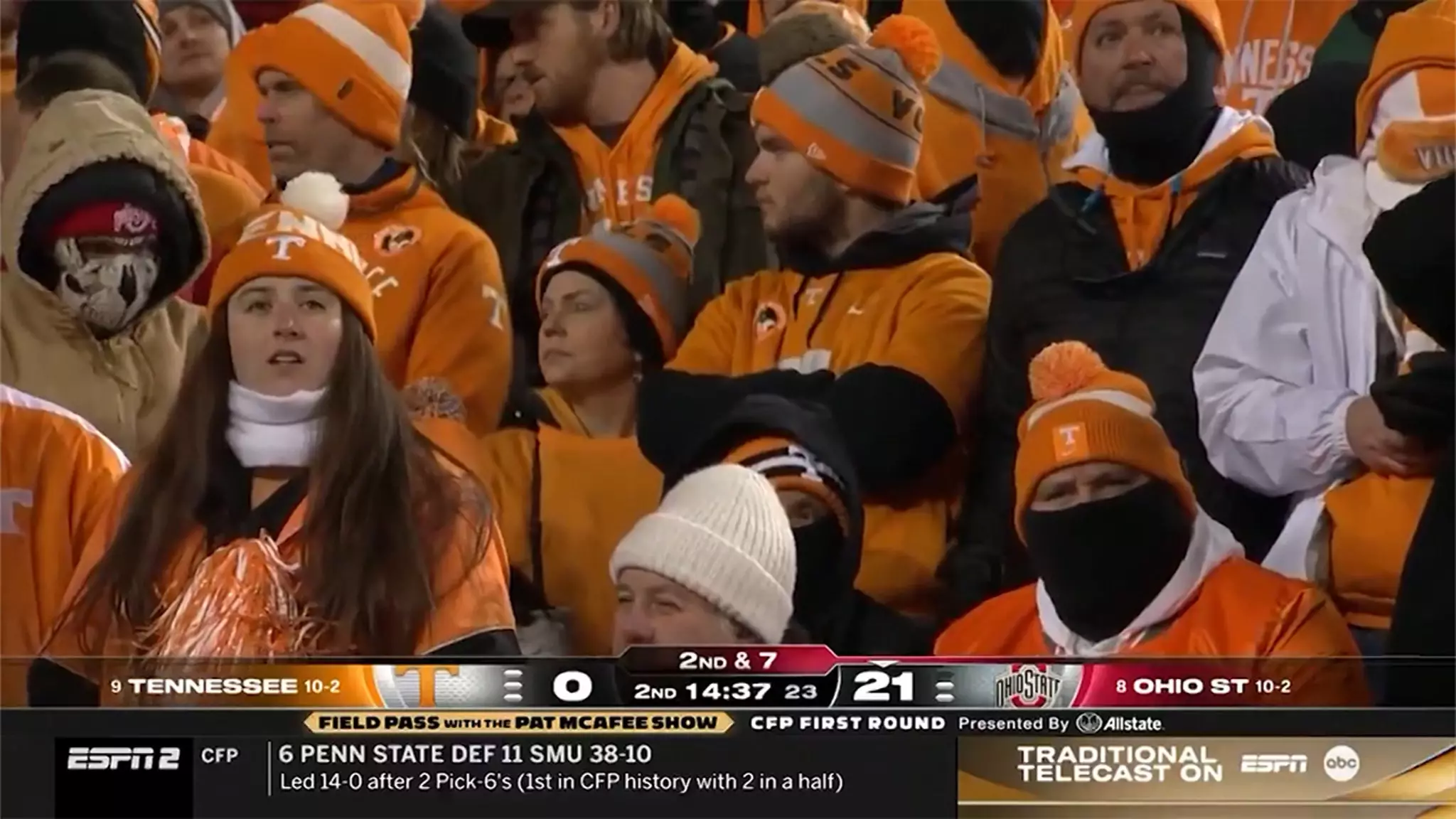In the fast-paced world of sports broadcasting, the approach taken by networks can significantly shape viewer experience. The recent College Football Playoff featuring the Ohio State Buckeyes and the Tennessee Volunteers showcased not only the athletic prowess of the teams but also the distinct style of commentary from ESPN’s alternate broadcast featuring “The Pat McAfee Show.” This broadcast revealed a trend wherein humor, often controversial, has become an integral part of sports commentary, pushing the limits of what is deemed acceptable for viewers, especially during high-stakes events.
The incident in question occurred during the second quarter of the playoff game when McAfee and his crew discussed fan reactions to Tennessee’s dismal performance. Boston Connor’s crude remark about Ohio State’s super-fan, referred to as “Big Nut,” was particularly striking. His phraseology not only caught the ears of fellow commentators but seemed to initiate a wave of shock among viewers. While humor can lighten the mood in what can often be an intense atmosphere during games, the use of such lewd language raises concerns about the appropriateness of content delivered through mainstream sports channels.
It has become evident that the audience’s reactions were mixed, with many taking to social media platforms to express their outrage. Criticism ranged from feelings of embarrassment for the network to calls for a more professional brand of commentary. Comments such as, “This is family time smh we need to bring back professionalism” reflect a frustration that some viewers feel toward the lowering of standards in sports broadcasting.
This incident invites analysis of ESPN’s broader strategy. The choice to feature McAfee’s crew — known for their irreverent humor — suggests a deliberate targeting of a younger, more casual demographic. While such a strategy might attract a segment of sports fans looking for entertainment over serious analysis, it simultaneously alienates more traditional audiences who expect a certain level of decorum. The conflict lies in the portrayal of sports as both a sacred tradition and a source of entertainment, with commentary styles striving to capture both `factors.`
Moreover, this trend isn’t isolated to Patrick McAfee or ESPN alone; it reflects a larger societal shift towards more informal and provocative forms of entertainment. Perhaps the question shouldn’t be solely about decency but also about the evolving nature of what we perceive as acceptable in public discourse and entertainment.
As the world of sports commentary continues to evolve, it is essential to reflect on the implications of such controversial humor. ESPN — with its significant reach and influence — finds itself at a crossroads between maintaining traditional standards of sports commentary and embracing the modern, often unfiltered voice of contemporary humor. Ultimately, the decision lies in the hands of the viewers; as they either advocate for change or accept the shifting paradigm of what it means to engage with sports commentary today. Whether this trend is sustainable or a passing phase remains to be seen, but for now, it’s clear that entertaining, albeit controversial, commentary is firmly entrenched in the sports media landscape.


Leave a Reply